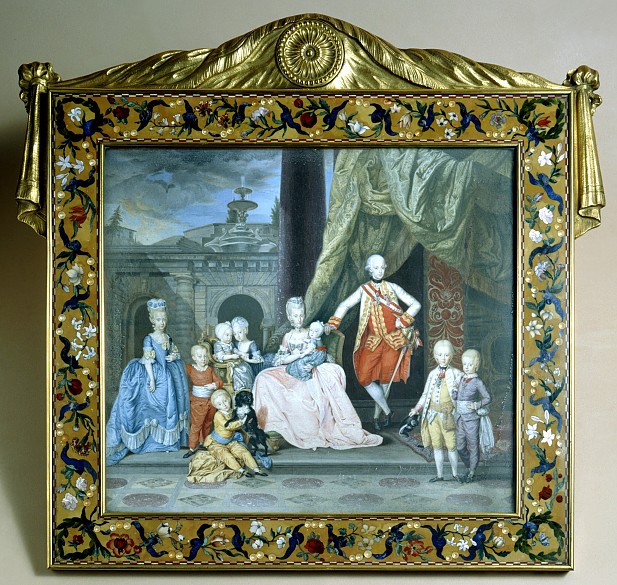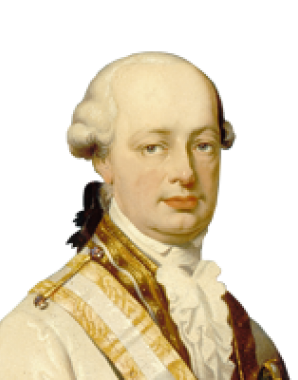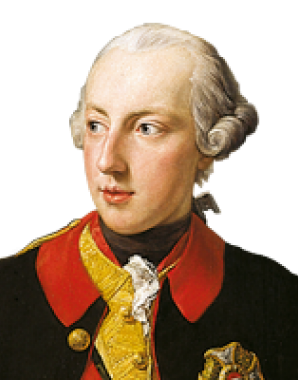Franz II (I): The ‘apprentice emperor’
Franz was the longed-awaited first male grandchild of Maria Theresa. When news of the birth arrived in Vienna, the empress burst into the Court Theatre in the Hofburg during a performance, announcing joyfully in Viennese dialect to all assembled: ‘Children, children, Poldl has a boy!’
Poldl was Peter Leopold, Maria Theresa’s second son, who had had to assume the duty of ensuring the dynastic succession, since heirs were by then no longer to be expected from her first-born son Joseph II.
The boy in question, Franz, was born on 12 February 1768 in Florence, where his father Leopold ruled as Grand Duke of Tuscany. His mother was the Bourbon princess Maria Luisa, infanta of Spain.
The second eldest of sixteen children, Franz grew up in Florence, bearing the hopes of the dynasty on his shoulders. Emperor Joseph II summoned his 16-year-old nephew to Vienna in 1784 in order to groom him as his successor.
The ‘apprentice emperor’, as Franz once referred to himself, was subjected to a strict and comprehensive educational programme by his uncle. His sluggish progress soon made Franz the butt of his uncle’s unsparing criticism: ‘He is stunted in his growth and strength and backward in his physical agility and deportment … in brief, he is the embodiment of a milksop, a weakling without abilities, used to being told what to do, unsuited to be a statesman … He mumbles when he speaks, uses coarse expressions, has a baying voice and swallows his words, partly from laziness, partly from carelessness, partly from misplaced timidity’.
An austere character himself, yet filled with a sense of mission as a monarch, Joseph recognized his nephew’s intelligence but criticized him for his phlegmatic nature, his obduracy and lack of willpower. Franz attempted to compensate for his lack of spirit by enormous industry and conscientiousness. These initial years in Vienna laid the foundations for Franz’s conception of his identity as monarch, according to which a ruler should be the ‘first servant of his state’. However, his frustration also resulted in an emotional rigidity and indecision which was to shape the character of the future emperor.
It was all too much for the young heir to the throne: Franz came to be regarded as wooden and rather pedestrian. While he developed an interest in the natural sciences, in particular botany, and was very well-read, he was unsure of himself in public and had a rather unengaging personality. The shy young man is described as being extremely thin and bony, an appearance that only emphasized his uninspiring personality.
Uncle Joseph also chose a suitable wife for his nephew. The bride that Franz led to the altar in 1788 was Elisabeth Wilhelmine of Württemberg, of whom the emperor thought highly and was very fond. When she was pregnant with her first child the young woman visited the dying emperor on his sickbed. She was so horrified by the state of her old mentor that she suffered a miscarriage which resulted in her death. Distraught at her sudden demise, Joseph passed away only a few days later.
Aged only twenty-two, Franz was not regarded as mature enough to follow his uncle on the throne. His father assumed the regency and was elected Holy Roman Emperor. When Leopold II died unexpectedly after a reign of only two years, the way was finally clear for Franz.













